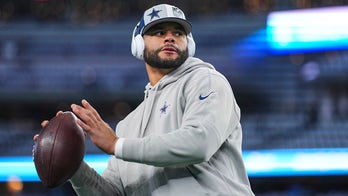Richard Childress, a veteran NASCAR team owner, expresses disappointment and believes the ruling against Austin Dillon has significantly altered the sport's competition.
Richard Childress, a veteran NASCAR team owner with over 55 years of experience, has expressed his profound disappointment over NASCAR's decision to revoke Austin Dillon's playoff spot. Childress believes the ruling will have a profound impact on the sport's competition, indicating that it may have cost his team over a million dollars in lost earnings.
After Dillon's controversial win at Richmond on August 11, NASCAR revoked his automatic berth to the 16-driver playoff field, citing a rule prohibiting wins encumbered by violations or actions detrimental to NASCAR. Dillon had been involved in a late-race incident with Joey Logano and Denny Hamlin.

NASCAR Ruling Impacts Racing Forever, Says Disappointed Childress
Richard Childress Racing appealed the decision, but it was upheld by both the NASCAR appeals board and the final appeal officer. Childress expressed his dissatisfaction, stating, "Their ruling has changed NASCAR racing on the final lap forever. It's over a million dollars to us. The largest fine ever in NASCAR. I'm just disappointed, disappointed, disappointed. That's all I can say."
NASCAR President Steve Phelps explained the rationale behind the ruling, emphasizing the need to maintain a level playing field and prevent aggressive driving that could jeopardize the safety of competitors. He stated, "If we hadn't penalized it, then I think what we would see over the next 12 weeks would look significantly different. We just can't have it."

NASCAR Ruling Impacts Racing Forever, Says Disappointed Childress
Childress, however, argued that Dillon's actions were not egregious enough to warrant such a severe penalty. He questioned whether drivers would be hesitant to make aggressive moves in the future, fearing potential consequences.
"The drivers now, they know where a line is, or they think they do," Childress said. "They don't. If you go in a car length – two-and-three-quarters was exactly how far back he was [of Logano], and the other car slows down 3 miles an hour on the last lap, you're going to bump in a little to get [him] up the race track. Is that over now?"
Childress also criticized the composition of the NASCAR appeals panel, suggesting that its appointed members may not fully understand the intricacies of the sport. "An appointed appeal group—it's tough to beat an appointment in anything," he said.
Despite his disappointment, Childress indicated that the team would not pursue legal action due to NASCAR rules that generally prohibit teams from suing the sanctioning body. However, he hinted that his choice of words would be carefully considered to avoid further penalties.
"If it was a legal case, we had attorneys look at both sides of it, there was no way we would have lost," Childress said.
The NASCAR ruling has sparked a heated debate within the industry, with some drivers expressing support for the decision while others have expressed concerns about its potential impact on competition. The full ramifications of the ruling remain to be seen, but it is clear that it has left a lasting mark on the sport.










